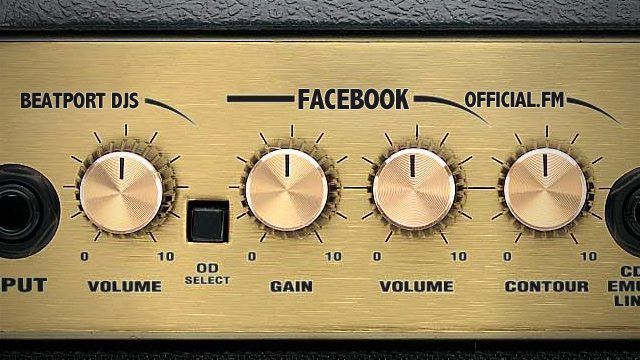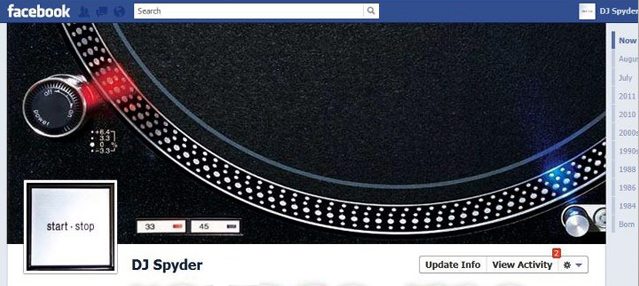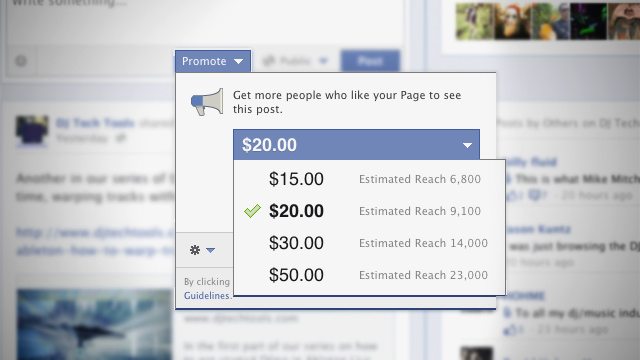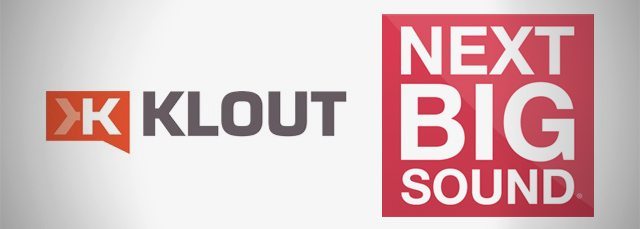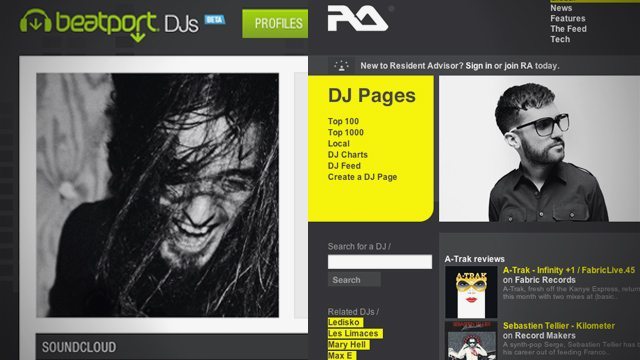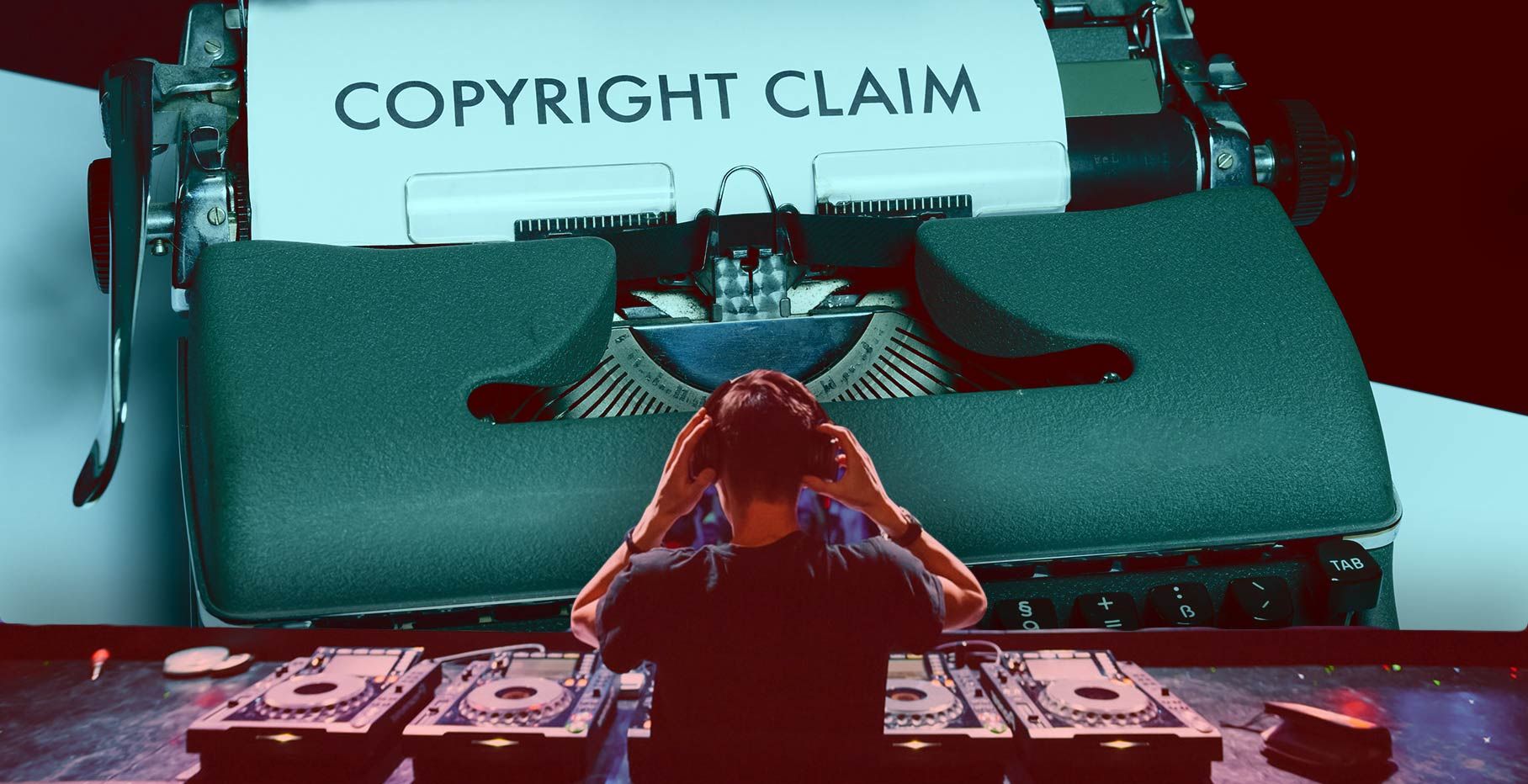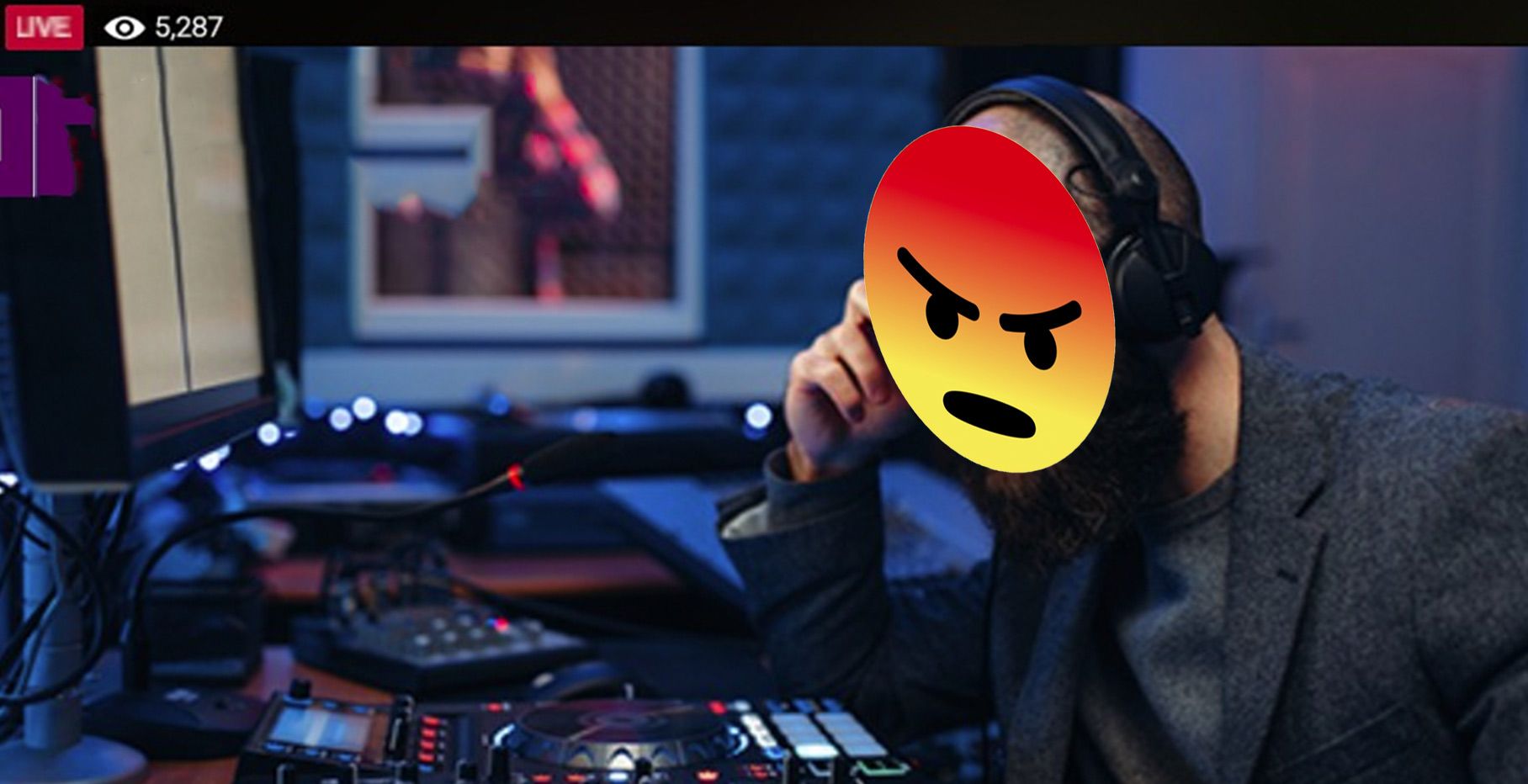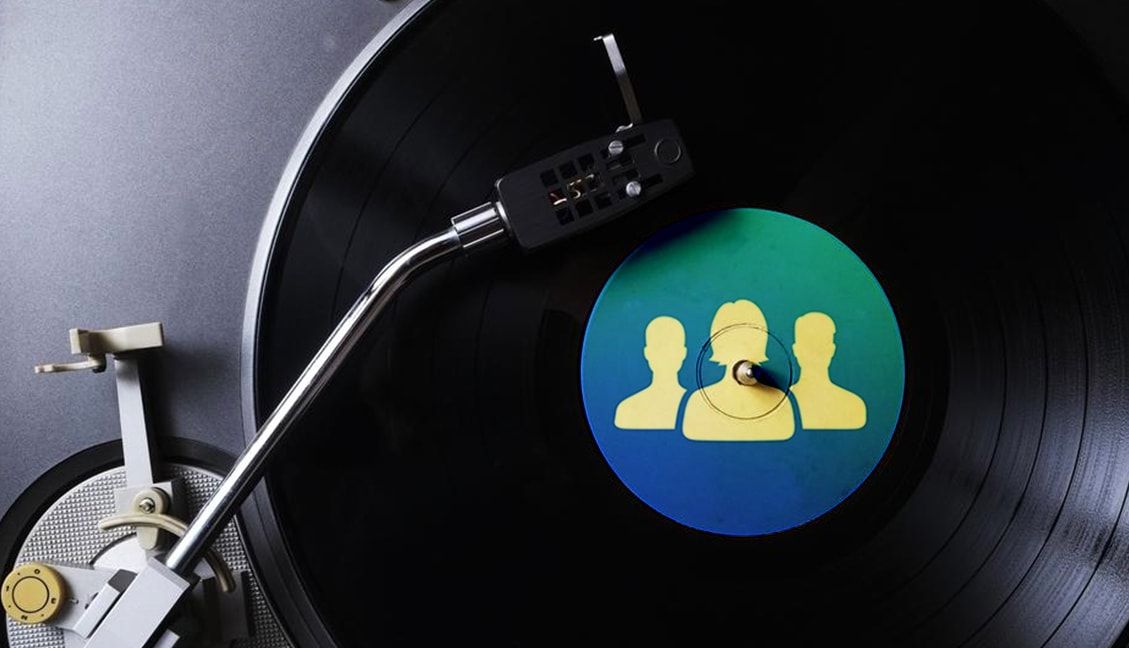As a digital DJ or electronic music producer, a well-curated internet presence can seal the deal when booking gigs, getting fans and friends out to your events, or putting your original tracks into headphones around the world. Today, we focus on some of the best tools and practices out there for maximizing your time online in 2012.
WHAT’S YOUR OBJECTIVE?
Most active performing DJs and producers already have a web presence somewhere online. However, before dedicating loads of time and energy into whatever network or site (or combination of multiple) you’ve decided on, take a minute to think what’s really important to you as an artist. Knowing what you want to accomplish with your internet presence will help you determine what tools will best fit your needs.
As we see it, these are the most common objectives for DJs and producers:
- Reach out to current fans and followers
- Get discovered by potential new fans
- Get people to listen to your music
- Present a unique identity or associate your identity with a larger, important group
MYSPACE: FORMERLY THE GOLDEN IDOL
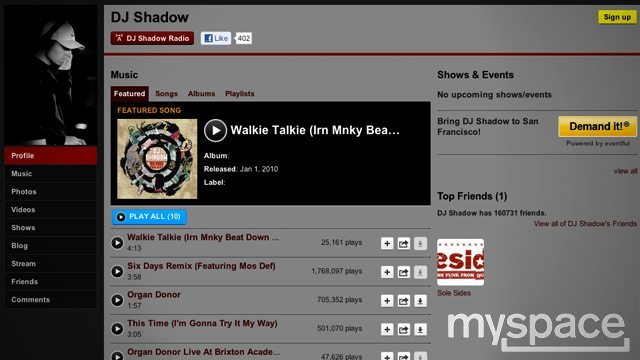
Seven to ten years ago, the complete package existed, and everyone in the industry knew it was the number one resource for bands and artists to create an online presence. MySpace has been falling out of the limelight since 2007, but when it stood tall in the world of artist communication it accomplished (to a significant degree) every single one of the goals above. Sure, profiles were often buggy and ugly, but users saw it as a place to find and follow new artists. I couldn’t write a better obituary for MySpace than DMC DJ Champion A-Trak did in the Huffington Post last month, so check his out instead.
MySpace Music still exists, but the NewsCorp-owned site has dropped in reputation and traffic steadily for the last two years. (Sources: Alexa, eConsultancy). It is worth noting that for a number of DJs and producers who you search online, their MySpace still show up in the top Google results, but if current trends continue, don’t bother. Instead, you’ve probably made a….
FACEBOOK PAGE
With the slow agonizing death of MySpace came the rise of Facebook as a social network, including “Like Pages”. I’m pretty confident that everyone reading knows what Like Pages are – but if not, feel free to visit the DJTT Facebook Page now.
Facebook Pages have been a great platform for artists to connect with their fans, and musicians and DJs have the ability to easily flesh out their pages with photo, audio and video content. Soundcloud and Mixcloud (more on them below) both integrate easily into Facebook pages, posting updates when new tracks/mixes are added. Producers and artists will appreciate that Spotify and Rdio plays show up on Pages, meaning that fans who get to your site have a chance to very quickly play your tracks.
MAKING FACEBOOK PAGES MORE EFFECTIVE
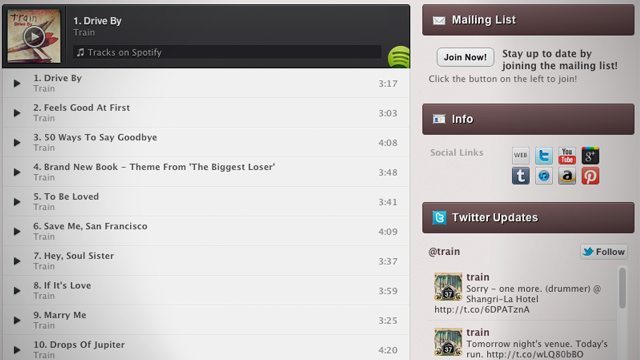
A lot of readers have asked us how they can use Facebook as a better promotion tool for their DJ career, and we recommend immediately taking two actions to make your Facebook DJ pages more effective:
First, check out Bandpage by RootMusic and FanRX. We’ve written about Bandpage in the past, but in a nutshell, it makes the default view for new visitors to your page a display that shows a picture, your next upcoming show, and your most recent tracks. This ensures that new visitors will immediately get access to the most relavant information about you as an artist. FanRX does the same – but the free version has a bit more customizability in terms of offering features such as advanced sharing behaviors, and additional modules for contests, email list signups, and more. They’re both powerful customizers that are worth exploring.
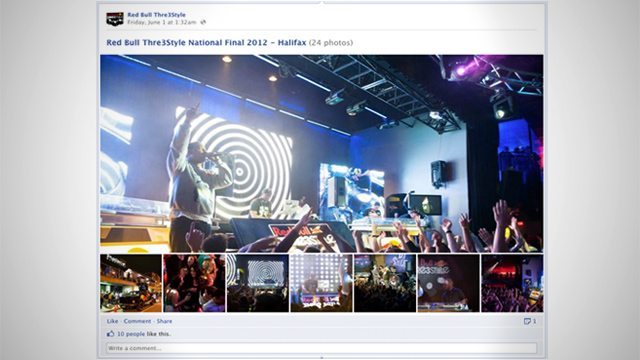
Our second Facebook Page tip for DJs is to upload and tag photos to increase the reach of your page. I learned this from a friend who threw an awesome weekly DJ night at a bar. He would bring a camera to every night, take loads of pictures of people having an awesome time, and then would upload the photos to his page and tag the people in the photos. These photos showed up in the news feeds of friends of the tagged fan, and linked directly back to his artist page when anyone clicked into the photo or album.
Facebook also seems to often assign a higher value to posts with content beyond text (like photos or videos), as they’re more likely to attract a click and increase pageviews. Use this to your advantage and post links, photos, and videos that have relevance to yourself as a DJ or to your fans!
THE CASE AGAINST FACEBOOK PAGES
Despite its awesome potential, we need to point out a recent development with Facebook Pages that could be devastating for smaller artists and pages. It’s been known for a while that Facebook filters a user’s homepage newsfeed based on who they actually engage and interact with, including the Pages that they interact with. This potentially means that even though a follower might want to know about a post you just made, if they rarely or never interact with your page, it’s unlikely it will show on their newsfeed. Instead, Facebook now has monetized that reach – charging page owners cash money to engage with those individuals. It’s not realistic for many smaller DJs to be posting up $5.00 – $20.00 everytime they want to remind their entire fanbase about a show. Read some more commentary about this change here, on Always Upward.
Additionally, as a DJ looking to get noticed and easily found, you should consider a few other factors in your web presence – don’t limit yourself to just one outlet, but instead connect multiple outlets. This is especially important when building links and getting great natural search results on Google – more on that later.
TOOLS TO TRACK YOUR WEB PRESENCE
There are a few tools that are designed specifically so that you can make a solid assessment of your own digital power, reach, and overall importance. Klout, which is attempting to create a standard metric for digital influence, allows users to connect all of their social networks to the system and provides a regular grade based on the reach of your activity. While I’m not convinced that promoters are going to be booking DJs based on their Klout scores (yet!), it’s a great way to directly see how your actions correspond to gains and losses in influence and visibility. Best of all, it’s free.
If you’re taking off and are building a larger fanbase, we recommend considering signing up for Next Big Sound, which for a significant ($79) monthly fee provides extremely detailed analytics on Facebook likes, Wikipedia pageviews, Twitter fans, Youtube/MySpace/Last.fm plays, and more. It’s a hefty fee, so we’d mostly recommend it for DJs and producers who are actively touring and devoting a full-time schedule towards their craft.
DJ-SPECIFIC SOCIAL NETWORKS AND LISTS
In addition to normal social networks, a lot of DJs find it important to maintain their identity across places online where other DJs maintain a profile – especially those who plan to or dream of becoming a major artist. Doing so will also secure your identity and stop others from taking your super clever DJ name, and it will make sure your Google natural results are chock-full of hits that all are actually connected to you. Here are the three sites we recommend ensuring that you start with when spreading your name around the web.
- Beatport DJs: Beatport has billed this as the ultimate DJ profile site on the internet, and although it’s in beta, you can see why. Its clean design, simple feature set, active current feature development cycle, and powerful simple URL (ex: http://dj.beatport.com/bassnectar) means that it’s a no-brainer and will have longterm value.
- Resident Advisor: In addition to being one of the most informative electronic music communities on the web, RA is a great homebase for a number of DJs. They’ve got a great event listing feature that’s especially active in Europe, and maintaining a profile on here is highly recommended for DJs who play a lot of club/underground gigs.
- DJ List: This is an older, clunkier site in terms of functionality and design, but Google still assigns a fairly high value to profiles coming off of this site. Take two minutes and claim your name here, but don’t be too concerned about making it look nice.
Editor’s note: In the comments, Rolfski notes that he finds that the Facebook / Soundcloud / Twitter combination is the most important trifecta of internet presences for DJs. We agree that Twitter is powerful, but it’s an inherently temporary, fast-moving method of communicating to your fans – so make sure that you have a fanbase who is ready to listen and that you balance frequent posts with interesting insights. Duplicating the same content across all of your communication networks is not the best practice, as it doesn’t reward people for being more engaged with you.
SOCIAL NETWORKS VERSUS INDEPENDENT WEBSITES
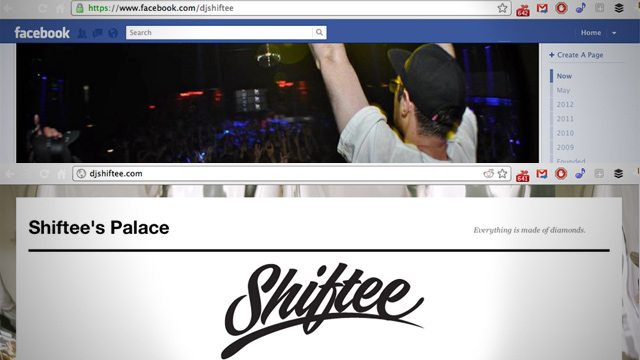
So far, we’ve been focusing purely on social networks – but what about building your own webpage from a template or from scratch as your primary web presence? This has been often perceived as the best way to achieve one of the core goals of presenting a unique identity that will attract promoters and listeners. That being said, a lot of promoters and listeners expect to interact with artists and DJs through a familiar framework of a social network that allows them to quickly glean information about you (I’d even argue that this structural predictability was what made Facebook shine in comparison to MySpace).
Another very important concept to understand in this debate is that Facebook and other social networks are built around the concept of sharing – for instance, that incredible photo of you DJing is very easily commented on and shared in a potentially viral process on Facebook. This wouldn’t ever happen on a photo gallery on a small DJ website.
That being said, you have much more freedom on your own site, so don’t let us stop you from building it. We’d recommend keeping any site that you design simple and understandable – your identity shouldn’t ever get in the way of communicating the most important information to the people trying to find it.
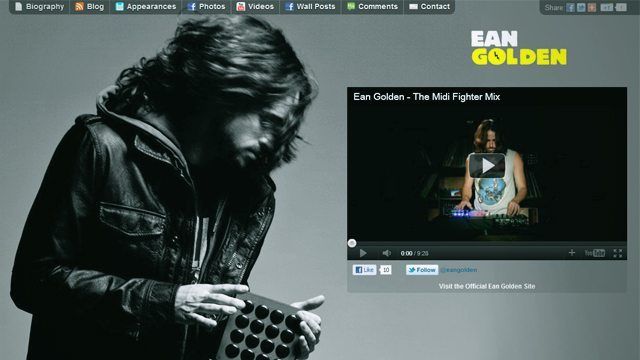
A site that we’ve reviewed previously that quickly allows you to make a professional artist website is Onesheet. The service is out of beta now, and actually incorporated some great feedback from DJ TechTools readers! Great job, all.
Also worth mentioning are two (very similar) services that have cropped up around the same time, About.me and Flavors.me – they’re all essentially the same, but personally I think Onesheet has the best interface and results in terms of simple design and customization.
What About Just A Blog or Self-Designed Webpage?
The biggest thing to consider here is that you’ll then need to take significant time to make sure the design of your site is clean, professional, and functional – and that means time and/or money. Remember that spending time developing or designing a site might ultimately not be the best use of your resources, depending on where you are in your DJ career.
TRACK AND MIX HOSTING SITES
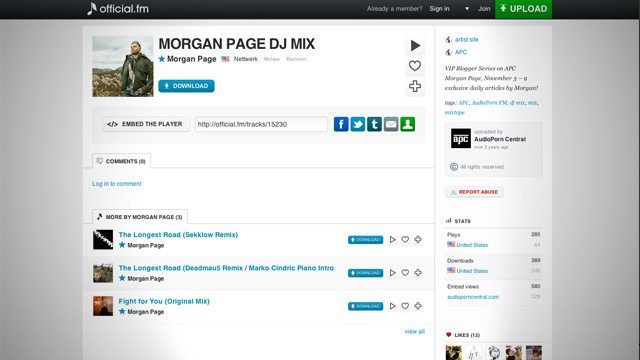
Most everyone is well acquainted with the two major players when it comes to hosting your DJ mixes, remixes, and original tracks – Soundcloud and MixCloud. Having a presence on one or both of these popular sites is a great way to get your tracks into people’s ears, but instead of discussing the pros and cons of each (see this debate on the DJTT Forums instead), we wanted to simply highlight another third player that forum member Hedgehog brought to our attention in the above forum thread last year: Official.fm, formerly known as Fairtilizer.
The platform allows users to sign up and create a music project with very few limitations on file length (500MB upload limit per file is pretty great), and public or private tracks can be set to stream and download. Additionally, it’s got a decent embeddable player, and it’s all free, so if you’ve been looking for a feature-filled alternative to the mix-hosting giants, this could be it.
CHOOSING A GREAT URL
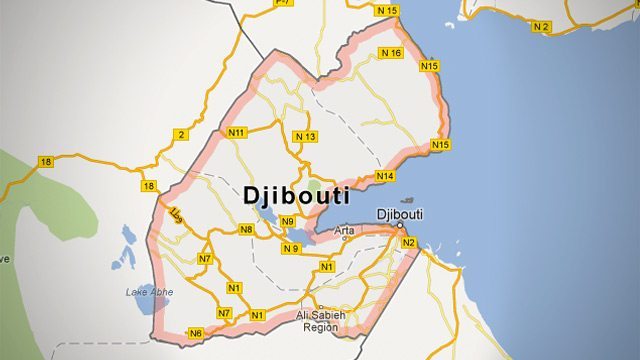
If you can get your DJ name and then “.com”, do it now. Many of the services we’ve mentioned can take your URL and forward it to the page you’ve created. Additionally, we’ve all seen web startups in the last five years come up with creative names that use a custom url ending, which can be a great way to make a shorter url that looks clean.
Finally, just as a public service announcement, Djibouti does allow non-citizens to register .dj domain names – go ahead and register “yourname.dj” today for 40 Euro/~$50 per year!
What awesome tools do you use to build, maintain, and track your DJ web presence? We want to know how you accomplish your online DJ goals, so let us know below.


